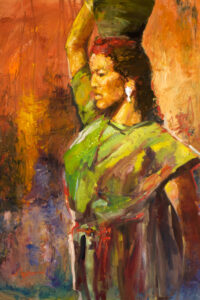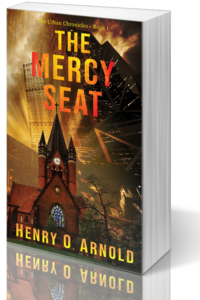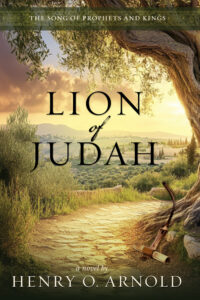When a modern person talks about having a religious experience, that could mean anything from having an excellent cup of coffee to watching a sunset. One could say the same when having a sacred moment in a house of worship, or listening to a piece of music, or standing on a mountain peak, or reading a book. No location is required, nor a prescribed activity, nor a pre-conditioned state of mind that must be in place for someone to experience a moment of other-worldly ecstasy.
A unique kind of joy can be had standing before a painting or in the company of another person when the conversation is both fascinating and enlightening, that too can give one a sense of bliss. While such experiences might be considered spiritual in a loose sense of the word, they are not necessarily holy. Holy moments are astonishing and rare, and often result in a complete change of one’s life and character.
Twentieth-century German theologian, Rudolf Otto, coined the term mysterium tremendum in his book The Idea of the Holy. Otto describes that when one is truly in the presence of the holy, the first thing the person realizes is the state of his wretchedness. We modern people are too busy propping up a perception of our self-esteem to want to risk being confronted by the barrenness of our soul. It takes a deep vulnerability to be open to the presence of holiness.
In my new novel, Crown of the Warrior King, available today wherever books are sold, the prophet Samuel has one mysterium tremendum in the story that so overwhelms him, he falls on his face. For Samuel to understand the heart of God, he must feel what God is feeling. The Almighty invites Samuel into this shared experience, and he comes away with an understanding that the impact of a wayward soul breaks the heart of God and there is a painful cost in restoring it.
When Samuel gets back onto his wobbly feet, he knows he cannot be still. He cannot be silent. He must speak. He must act. There is no going back from this point. The course of history for a prophet, a king, and a nation will be changed forever. It is the inevitable result of an encounter with the holy.





